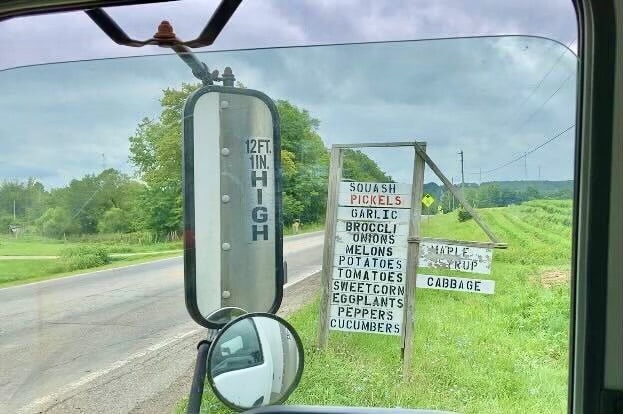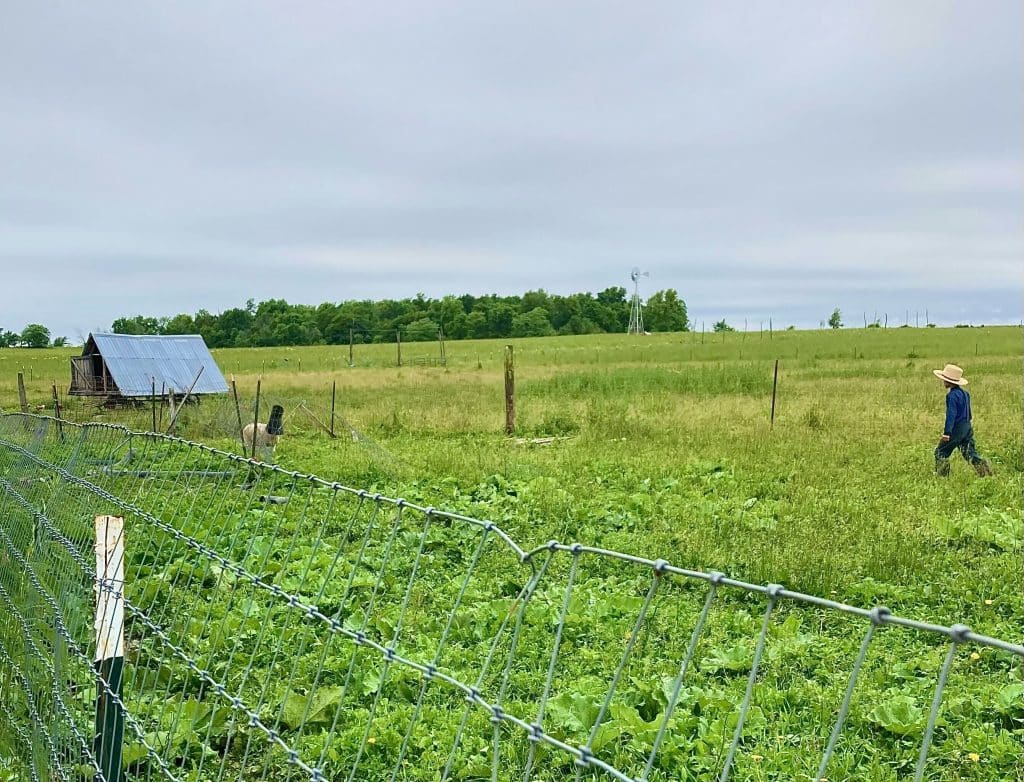Behind the idyllic appearance of rolling fields, grazing cows, and laundry lines as tall as a house, lies an inspiring dedication to an intentional lifestyle.
You might be wondering where we get all of our gorgeous, robust fruits and veggies for shares. We’ve heard the rumor going around that it’s all grown in secret aquaponic systems in the back of the box truck that rolls up to your Fresh Stop. Don’t worry, it’s just a rumor! In reality, the majority of our produce is sourced from family farmers in Ashland and Medina counties, the majority of whom are Swartzentruber Amish. Farming is the number one profession among the Swartzentruber, and after tasting the incredible veggies they grow, there is no doubt why. We work primarily with five of these farmers, as well as a few area orchards.


In Amish country, farming is a family operation, with everyone helping out in different ways. From small children fetching notebooks and pens for their parents to keep records, to older children taking the buggy down to mill einkorn; mothers and fathers weeding the pepper fields and sowing seeds, to the grandpa stationed at the raspberry stand. It is easy to pick up on these families’ strong connection to nature. Their respect for the earth is embodied in their farming practices, which include avoiding pesticides and chemical fertilizer, rotating crop fields, purchasing non-GMO seeds, and repurposing all sorts of items to make new tools. Recently, our farmers have been mulching the fields to keep pests away, retain moisture, and encourage earthworm populations, as well as constructing new barns and sheds (at an impressive rate, might I add!). Many farmers are also engaged in animal husbandry such as raising sheep, chickens, and bees. Behind the idyllic appearance of rolling fields, grazing cows, and laundry lines as tall as a house, lies an inspiring dedication to an intentional lifestyle.
The Amish families we work with are yet another part of the rich City Fresh community. Without their sustainable practices, cooperative spirit, and close location, our work would not be possible. For that– as well as the kindness these farmers and their families have extended, whether it be suggesting other growers to fill orders during the berry season, sending along a box of misshapen carrots for the food pantry, or venting about the anxieties of the modern age– we are truly grateful. From grower to eater, farmer to shareholder, we are supporting each other, building community and creating a more connected and resilient local foods system, one farm box at a time.
